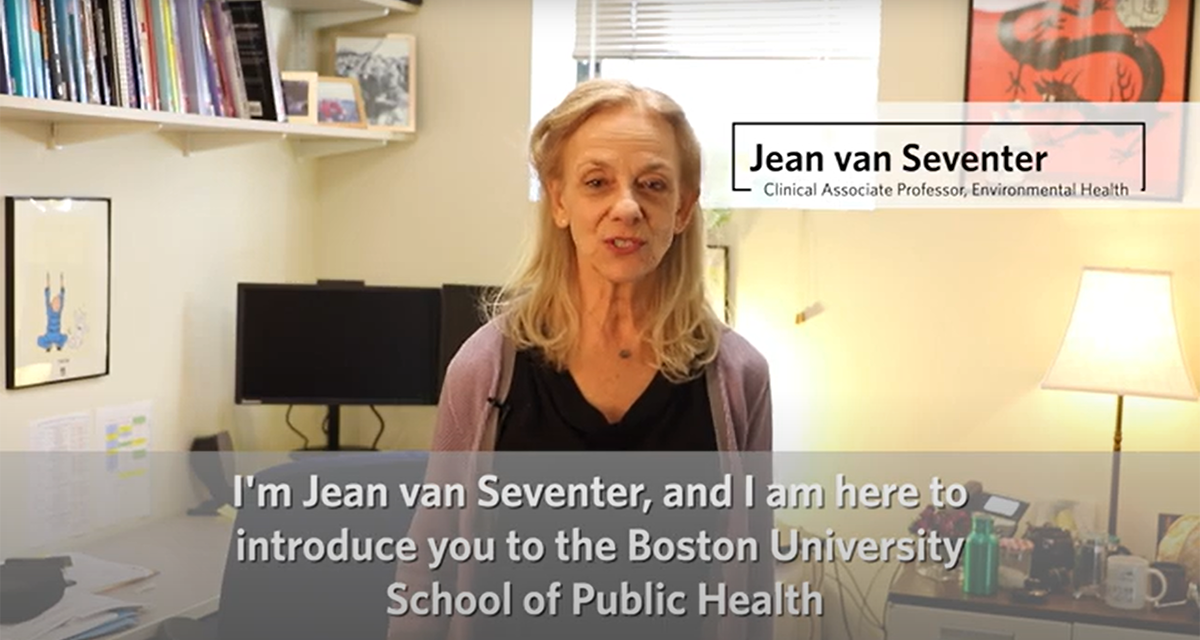Infectious Disease.
As part of Boston University’s on-campus Master of Public Health (MPH) degree, you have the option to add a Context Certificate to your functional area of concentration, deepening your knowledge in an area or population of greatest interest to you.
Infectious Disease Context Certificate
Infectious diseases are responsible for a significant burden of disease, disproportionately affecting vulnerable populations worldwide. The problems posed by these diseases to both governmental agencies and nongovernmental organizations focused on health and development are numerous and varied. Infectious diseases range from chronic neglected tropical diseases that primarily occur in rural communities of low- and middle-income countries, to waterborne, foodborne, and vector-borne diseases that affect both rural and urban populations in those countries, to diseases caused by multi-drug-resistant organisms that are one of the largest threats to public health in all regions of the world. Climate change, environmental changes (deforestation and increased urbanization), global travel, and international commerce facilitate the emergence and spread of novel and known infectious pathogens to new geographical locations.
This 12-credit certificate provides a foundation for a public health career that will involve working with infectious diseases in the many settings where they occur. Students will learn how data are collected and analyzed in order to identify agent, host, and environmental (physical, social, behavioral, cultural, economic, political) factors contributing to the cause and spread of infectious diseases. Upon completing the certificate, graduates will be prepared to design contextually appropriate interventions for infectious disease prevention, control, and elimination.
Upon graduation, students will be able to:
- Collect and analyze data to describe agent, host, and environmental factors contributing to the causation and spread of infectious diseases.
- Demonstrate an understanding of appropriate methodologies to study infectious diseases including diagnostic and environmental testing, surveillance systems, and epidemiologic study designs.
- Discuss key public health prevention and control activities for major categories of diseases including diarrheal diseases, respiratory diseases, vector-borne diseases, foodborne and waterborne diseases, and sexually transmitted diseases.
- Design resource setting and socio-culturally appropriate interventions for infectious disease prevention and control; effectively communicate recommendations in both technical and non-technical terms.
- Critically assess the infectious disease academic literature, analyzing the strength and validity of the hypothesis, study design and methods, results, conclusions, and public health significance of primary research studies.
Sample Course Titles
- Infectious Disease Epidemiology
- Water Quality and Public Health
- Global AIDS Epidemic: Social and Economic Determinants, Impact, and Responses
- Epidemiology of Vaccine Preventable Diseases
- Microbes and Methods: Selected Topics in Outbreak Investigation
- Controversies in Global Control & Eradication of Infectious Diseases
- Analysis of Emerging Infections Using the One Health Approach
View the BU Bulletin for Course Requirements
Sample Practicum
- Develop a methodology to collect information on appropriate antibiotic use for the World Health Organization (WHO)
- Surveillance for arboviruses, including West Nile virus and eastern equine encephalitis virus, Massachusetts Department of Public Health
- Epidemiological assessment and tool development for primary care screening for tuberculosis in Boston’s Homeless Population, Boston University School of Medicine
- Research association between HIV-infected adults with current substance dependence or ever injection drug use, Boston University School of Medicine
- Enhance surveillance of chickenpox hospitalizations in Massachusetts, Massachusetts Department of Public Health
- Analyze and rewrite emergency infectious disease preparedness plan for pandemic outbreaks, East Boston Neighborhood Health Center
Certificate Director
Frequently Asked Questions
Are you a current student in need of advising?
Which course bulletin should I use if I matriculated several years prior?

